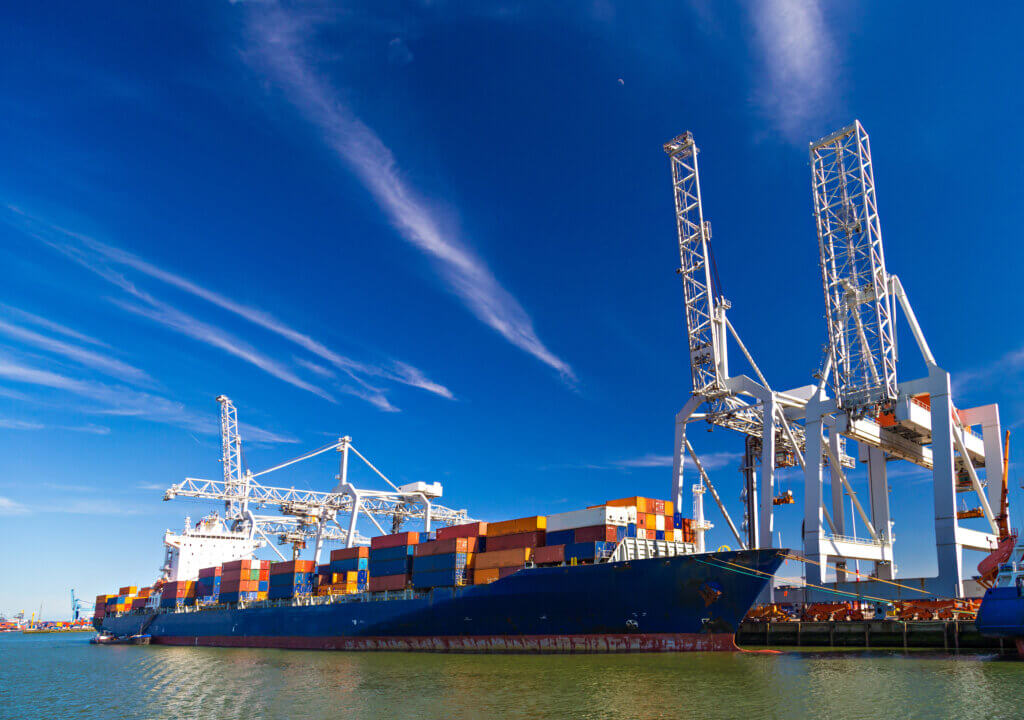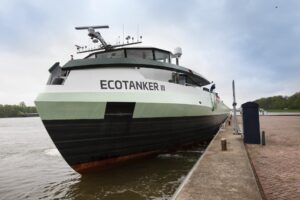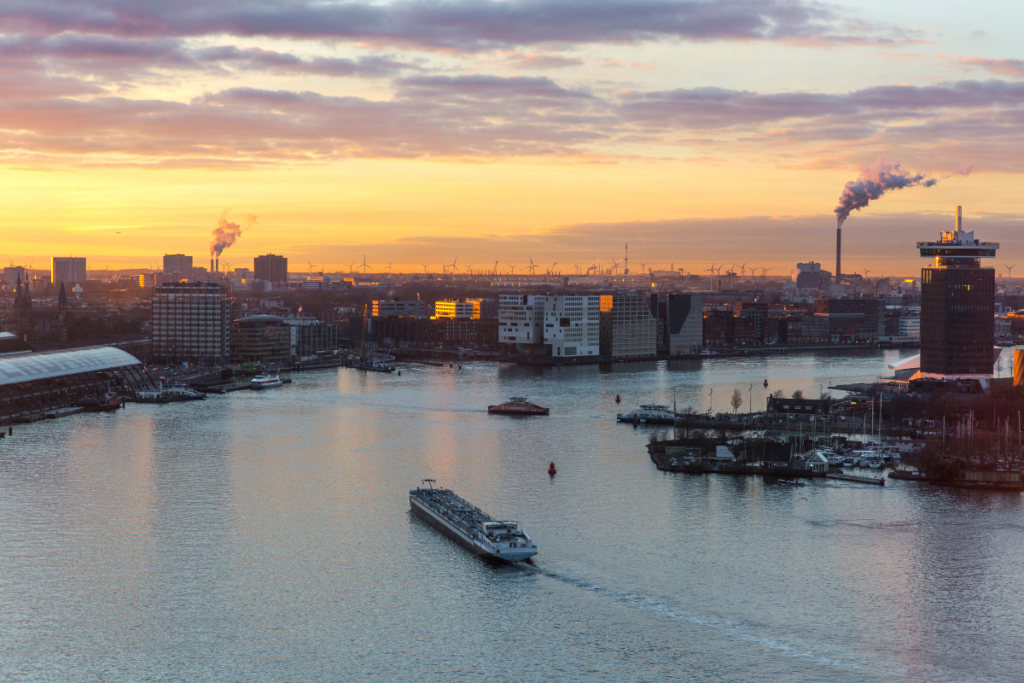Set Course for a Smart, Sustainable Maritime Future with the Netherlands
As the maritime heart of Europe, the Netherlands offers an advanced ecosystem for companies to drive the future of global shipping, offshore energy and smart maritime solutions. There are numerous factors that set the Dutch maritime sector apart:
- Rotterdam is the #2 leading maritime city globally. The Dutch city is Europe’s largest, most complete maritime cluster – a place where port innovation, sustainability and smart shipping come together.
- The Port of Rotterdam is the world’s #1 smartest port, leveraging cutting-edge technologies and innovation to become the port of the future.
- The Dutch maritime sector is a leader in adopting green technologies. It has set ambitious targets for reducing CO2 emissions by 55% by 2030, aiming to achieve carbon neutrality by 2050.
- With 90% of imports arriving by sea, the Netherlands’ strategic location ensures efficient and seamless access to the European market.
- The Dutch maritime sector excels in the development of climate-neutral ships, smart maritime technologies and advanced offshore wind farm constructions.
The Netherlands’ maritime industry is multifaceted, powering groundbreaking maritime products and services of the future. The Rotterdam region is a major player in this story. Renowned as a global hub for maritime innovation, trade and sustainability, Rotterdam has one of the most complete and highly competitive maritime clusters in the world.
The maritime sector is vital to the Dutch economy, accounting for a significant portion of the country’s gross domestic product and total employment. Moreover, maritime advancements play a key role in the Netherlands’ national security and progress in the energy transition.
As a result, the Netherlands is an attractive harbor for international players looking to lead the maritime industry and drive its transitions forward. Whether it’s smart shipping, advanced navigation technologies, sustainable shipping solutions or innovations in maintenance and inspection: the Dutch ecosystem welcomes all innovators to steer toward a smarter, more sustainable maritime future.
Reducing the carbon footprint across supply chains
By focusing on smart shipping, digitalization and high-tech solutions, the Netherlands is boosting maritime efficiency and reducing the industry’s carbon footprint. The ensuing benefits directly impact ship owners while rippling across diverse supply chains, including key sectors such as life sciences & health, high-tech and logistics.
Overall, the Netherlands is a top destination for organizations developing and integrating new maritime technologies at scale in pursuit of sustainability. That covers everything from the drive to zero emissions and autonomous shipping to efforts toward safety, security and Blue Growth.
The Netherlands also excels in innovative and sustainable shipbuilding. A diverse array of Dutch port cities and regions, such as Terneuzen, Kaag, Amsterdam, Friesland and Groningen, have emerged as industrial hotspots where companies are employing new and better methods to build marine ships, yachts and other vessels.
Accelerating green and digital corridors with the Dutch seaport network
The Netherlands is at the center of a growing network of green and digital corridors connecting ports around the world. The city of Rotterdam has signed agreements with other global cities like Oslo to establish green corridors for short-sea shipping. In addition, the Port of Rotterdam has launched green and digital corridors with several international ports, such as Gothenburg and Singapore. Aimed at deploying sustainable fuels along key routes, these agreements foster collaboration between ports, shipping companies, fuel suppliers and regulatory bodies in their respective clusters.
The green and digital corridor between Rotterdam and Singapore is the longest in the world, designed to accelerate the decarbonization of deep-sea shipping. The corridor serves as a living laboratory, enabling the development and large-scale implementation of zero-emission fuels, digital shipping technologies and sustainable port operations.
As a key global maritime hub, the Netherlands is at the forefront of green shipping innovation. Here, the breadth of the Dutch seaport network offers a distinct advantage, encompassing the ports of Rotterdam, Amsterdam, Groningen, Moerdijk and North Sea. These ports occupy a unique position within the Le Havre-Hamburg cluster, Europe’s most competitive coastal region. And it’s not just about location. When companies invest in maritime clusters surrounding Dutch ports, they gain access to state-of-the-art test facilities, strategic partnerships and funding programs supporting the transition to net-zero shipping.
Public-private collaboration attracts international innovators
Within this innovation ecosystem, there’s a constant flow of collaboration at all levels. Here, the Dutch triple helix empowers businesses, government and knowledge institutions to work closely together to solve challenges in the sector.
Research institutes like TNO, Maritime Research Institute Netherlands (MARIN) and Deltares, as well as accelerators like PortXL, create opportunities for maritime tech companies all over the world to work on innovative solutions for water and maritime challenges. That’s not to mention the Netherlands’ high-quality test facilities and field labs – like the historic shipyard of the Rotterdamsche Droogdok Maatschappij (RDM) – that offer space for innovative companies.
Maritime innovation cluster METIP provides an environment for companies and startups to collaborate with military partners on emerging technologies like maritime drones, immersive technology for defense training, additive manufacturing, robotization and wave technology.
Cutting-edge technology to advance the maritime sector
With all these advantages, the Netherlands is the natural choice for global companies to accelerate the next generation of maritime technologies. Add a pipeline of 12,000 maritime and 23,500 engineering students – spanning institutions like Scheepvaart en Transport College, Maritime Academy Harlingen, Delft University of Technology and Rotterdam University of Applied Sciences – and the link between talent, invention and delivery has never been stronger.
Within the Dutch maritime network, you’ll find companies leveraging smart shipping expertise to innovate new solutions for water prediction, cybersecurity, 3D printing or optimized route control. You’ll encounter key players working on advanced radar systems, or robotics firms pioneering automated maintenance and inspections. You’ll meet businesses shaping the future of sustainability with emission-free sailing and shipping, along with other clean technologies.
If you’re looking to chart a new course in the field of maritime technology, the Netherlands is the place to do it.


